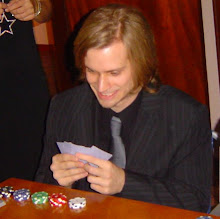Do Times of India
Brasilia: Recently, US secretary of state Hillary Clinton pressured Brazil's president Lula da Silva to join the US in imposing new sanctions against Iran. Lula rebuffed Clinton, saying it's "not prudent to push Iran against a wall". This is not what Clinton wanted to hear from a country that holds a rotating seat in the UN Security Council and is lobbying for a permanent one. Subsequently, in Tel Aviv, Lula shocked Israeli leaders by refusing to visit the tomb of the father of Zionism, Theodore Herzl. In May, he goes to Tehran to meet President Ahmadinejad, a move that a US newspaper described as "unworthy of a country that aspires to be considered an equal among the world's leaders". Is Lula behaving like a world leader?
Mocked by Brazil's chatterati for his fractured grammar, Lula has become a hit on the world stage with his Everyman style. At the London summit on the global financial crisis last year, on seeing Lula, US president Barack Obama shouted, "That's my man right here. Love this guy. He's the most popular politician on earth." Obama's gushing remarks came just a few days after the Brazilian had blamed the global crisis on "the irrational behaviour of people that are white, blue-eyed, that before the crisis looked like they knew everything about economics". Lula's remarks made the Brazilian elite cringe.
Set to leave office in nine months, Lula is travelling around the world and talking attacking the UN for its "caste system", blasting the rich world at Copenhagen, campaigning for a more global role for "emerging" countries and calling for a "dialogue" with Iran. This has made some western observers wonder if he is following Venezuela's Hugo Chavez as a "gladiator of the anti-imperialist battle".
Nothing could be further from the truth. Lula has become a hero at home and a statesman abroad for genuine reasons. In Brazil, his approval ratings are 76 per cent, a record for an outgoing president. His domestic accomplishments are unprecedented: since 2003, he has more than doubled the minimum wage to $300, helped lift 20 million Brazilians out of poverty, and brought public debt down to 35 per cent from 55 per cent of GDP. Last year, Brazil's reais was the fifth best-performing currency, inflation was down to 4 per cent and the country sailed through the economic crisis with hardly a bruise.
Thanks to Lula's social programmes, growth's biggest beneficiaries have been the poor for whom the president, who grew up polishing shoes and sharing a room with his mother and eight siblings, is a sign of hope. So high is Lula's popularity that he is even credited for the discovery of oil off the Brazilian shore. Brazil may soon become the third-largest producer of petroleum, and Lula has already announced plans to spend the oil income on anti-poverty plans.
Of course, Lula has made mistakes. There have been scandals in the government and he has been criticised by Workers Party leftists for "moving too much to the Centre". But no one disputes his biggest achievement: positioning Brazil in the world. Lula has converted economic muscle into global clout by pushing "south-south" trade and growing political ties with developing countries. That explains his stand on Iran, with whom Brazil's trade has grown by 40 per cent since 2003. So good is his chemistry with Ahmadinejad that Obama has asked Brazil to mediate between Iran and US, something Lula would love to do. Amid the row in Tel Aviv, Lula called for "someone with neutrality" to mediate the Middle East peace process. And he didn't mean Tony Blair.
Once laughed at by Copacabana's caipirhinha-sipping elite that "feared" Lula might embarrass Brazil abroad, the former metal worker has shown a solid grasp of foreign affairs. During his first term, he worked on closer ties with India, China and South Africa. Today, China, not the US, is Brazil's biggest trading partner. Playing a crucial role in the creation of IBSA and BASIC two groups involving Brazil, India, China and South Africa Lula has become the most vocal proponent of emerging nations on global issues ranging from finance to climate change. With the non-aligned movement as good as dead, these groups have become the voice of Asia, Africa and Latin America in global affairs. Calling him "a referent to emerging countries and also to the developing world", in 2009, a leading French daily named Lula "Man of the Year".
Lula is the man of the moment because he has followed a simple formula of strengthening the domestic economy, delinking the financial system from the US, cultivating ties with emerging countries and following an independent foreign policy. It's because of this he can speak his mind on any issue. Call it his good luck, but a lack of charismatic leadership in other emerging nations too has helped. Today, China and India are led by technocrats, not mass leaders, South Africa has failed to produce a well-known leader since Nelson Mandela and Russian president Vladimir Putin lacks democratic credentials. In such a scenario, Lula grabbed the opportunity with both hands. An Indian leader with imagination might have written this role for himself.
